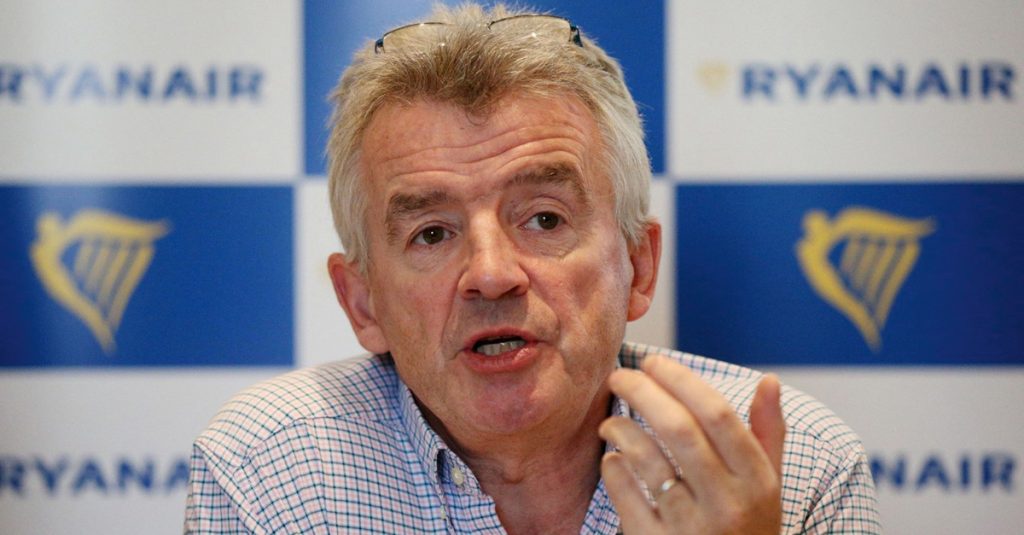Airline executives from Ryanair, easyJet, and Jet2 have expressed their dissatisfaction with the EU’s handling of airspace reform.
The recently agreed Single European Sky (SES2+) deal has been met with harsh criticism, with industry leaders demanding swift and substantial changes.
Ryanair’s Chief Executive Michael O’Leary criticised the new SES2+ agreement, labelling it as ‘lipstick on a pig.’
The deal, which was finalised in early March following prolonged negotiations, has not met the expectations of airline executives. According to O’Leary, ‘The Single European Sky delivered nothing over 20 years when there are real improvements that could be delivered in the next one or two years.’
Jet2 Chief Executive Steve Heapy echoed O’Leary’s sentiments, describing the agreement as ‘baby steps.’
Heapy emphasised the urgency of the matter, stating, ‘I find it staggering that states refuse to support this. We’ve been talking about airspace for 20 years. It needs to get moving. It’s about saving 10%-15% on fuel emissions.’ He insisted that ‘baby steps are not enough.’
Lundgren pointed out that the inefficiencies in current air traffic corridors contribute to considerable delays and carbon emissions. ‘In 2023, we had 10 million minutes of delays – that is 20 years of delays, and it’s something that could be fixed now,’ he said.
Lundgren stressed the need for accountability, noting that these issues have persisted for decades. ‘We’ve been having this conversation for years. These air traffic corridors were set up after the Second World War and have not been changed since,’ he remarked.
Spohr stated, ‘The failure on a single European sky has an impact on our credibility in aviation. How can we say we’ll cut CO2 when we waste fuel due to air traffic control?’
He pointed out the difference in accountability standards between corporate leaders and politicians. ‘You need to have credibility running a listed company. In politics, there is a lower level of credibility. To say things which sound nice but then not act on them is much harder for a corporate leader than a politician.’
The organisation demands urgent reforms to improve airspace efficiency and reduce environmental impact.
With millions of minutes of delays recorded annually, the inefficiency translates into increased fuel consumption and higher operational costs for airlines.
This inefficiency not only affects the profitability of airlines but also undermines efforts to reduce carbon emissions and enhance sustainability in the aviation sector.
Reformed airspace could lead to substantial reductions in fuel consumption, emissions, and overall operating costs for airlines.
Executives from leading airlines continue to press for immediate and comprehensive reforms to European airspace management.
The current fragmented system is not only economically detrimental but also environmentally unsustainable, stressing the need for prompt action to address these critical issues.

